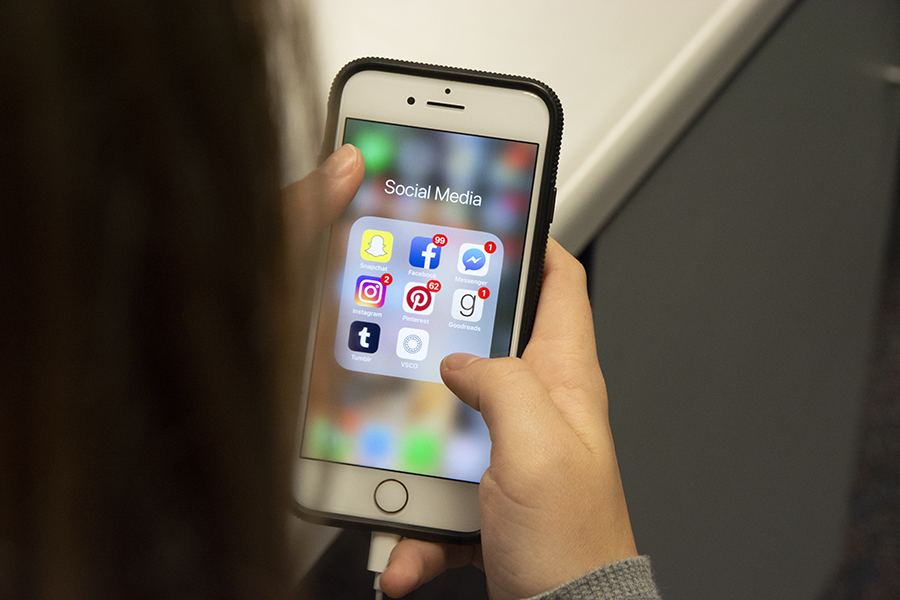Floating Ducks on Social Media
The impacts that social media has on teenager’s brains.
Teenagers can be affected mentally by social media apps like Snapchat, Facebook and Instagram.
Status. It means everything to many teenagers. Peer’s views seem to control high school lives, and a major part of that is social media presence. The number of likes, retweets, views and followers determines their “coolness” level on apps like Instagram, Snapchat and Twitter. It is sad that these superficial aspects of life play such a strong role in the life of adolescence today. Researchers have discovered that social media advocates anxiety and feeds even more insecurity to already low-self-esteemed teenagers. This can lead to more destructive problems like depression, bullying and leaving lasting impacts on social lives.
Today’s generation grew up with immediate access to the Internet and technology, so much so that researchers are calling them the “iGeneration.” When social media started making a bigger appearance in the world, teenagers of the last generation followed right along, knowing fully how they should appear on the new social apps, opening the door for this generation to do the same. People post images while having fun at the beach, hanging with friends or taking vacations, and that is perfectly okay. It is great for people to have the ability to share what is going on in their lives; however, there is a line that has been crossed with social media. The fact that pictures are deleted if they do not get enough likes or views not only defeats social media’s purpose, but is cause for more concern because there is a kid who determines what he or she should be sharing based on how many people double tap on his or her image.
Teenagers have instant access to see what friends are up to, making it very easy to compare themselves to others and believe that they are less than that person. This can lead to self-loathing and the belief that they are not as attractive or have as good of a life as someone they see on social media. Each time a teenager thinks that, it continues to chip away at their self-confidence. According to the Child Mind Institute, “kids struggling with self-doubt read into their friends’ images what they feel they are lacking.” Even though this happens, teens still find themselves scrolling through their feed constantly.
Social media can also act as a mask for kids struggling with depression and anxiety; someone can create an illusion of the perfect life on Instagram or Snapchat to hide that they are having these issues. Researchers at Stanford University conducted an experiment where they investigated the Instagram accounts of students who had committed suicide over the last few years and found that their social media feed portrayed them living perfect lives. After analyzing the results, the researchers created the term, “duck syndrome.” The phrase compares a person to a duck who seems to glide across the water with ease, but, under the surface, their feet work with extreme effort to keep them going, and the fight they make to keep from drowning is not visible.
Another major issue is that social media corrodes the social skills a person needs to learn in their adolescence. It is easier to send a message over text or through an app than it is to tell someone something face to face or even just over the phone. When teens feel awkward and they resort to their phones as a defense, it withdraws them from the social situation which disables them from learning from it. They feel it is easier to be the character they have created of themselves online rather than who they really are.
Social media is a great way to share with friends, but teens should think before they post and when scrolling through their feed. Even if their lives does not seem as grand as other accounts they see, they should not compare themselves. Students should take time away from their phones to explore the other joys in life that impact the brain more positively.









